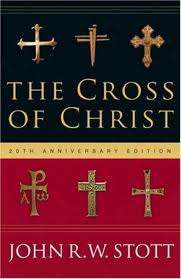Monday, March 21, 2011
Florida Baptist Witness and Tom Elliff
Posted by
Bro. Matt
at
2:19 PM
0
comments
![]()
Russell Moore on Why Hell is Forever
 Very good and intriguing article by Moore here.
Very good and intriguing article by Moore here.
"Second, and more important, is the nature of the punishment itself. The sinner in hell does not become morally neutral upon his sentence to hell. We must not imagine the damned displaying gospel repentance and longing for the presence of Christ. They do indeed, as in the story of the rich man and Lazarus, seek for an escape from punishment, but they are not new creations. They do not in hell love the Lord their God with heart, mind, soul, and strength.
"Instead, in hell, one is now handed over to the full display of his nature apart from grace. And this nature is seen to be satanic (Jn. 8:44). The condemnation continues forever and ever, because the sin does too. Hell is the final “handing over” (Rom. 1) of the rebel to who he wants to be, and it’s awful."
Posted by
Bro. Matt
at
10:22 AM
0
comments
![]()
Ways to Pray for IMB President, Tom Elliff
Posted by
Bro. Matt
at
10:04 AM
0
comments
![]()
Interview with New NAMB President, Kevin Ezell
Posted by
Bro. Matt
at
9:48 AM
0
comments
![]()
Friday, March 18, 2011
MUST LISTEN AUDIO!!!
Posted by
Bro. Matt
at
4:58 AM
0
comments
![]()
Wednesday, March 16, 2011
My Parents Celebrate 40 Years of Marriage
"I'm very excited to be celebrating 40 years with this amazing man. There are some particularly remarkable attributes of his that I'd like to share with you.
1) Steve is a committed follower of Christ and spends time daily in prayer and Bible reading. The children and I have reaped blessings untold as a result.
2) Steve has always given me security and stability because I knew he would do whatever it took to provide what the children and I needed. In the early days of starting his vet practice in Hartselle, I knew in my heart that he would take a second job sacking groceries if there wasn't enough business through the clinic.
3) Not for a single minute in these 40 years have I ever had to doubt his love for me, or his faithfulness to me and to our marriage. What a precious gift that has been and continues to be. I have no doubt that he has read the Book of Proverbs at least 100 times in his life, and I have personally benefited from his commitment to the principles in Proverb 5:15-18:
Drink water from your own cistern, and fresh water from your own well.
Should your springs be dispersed abroad, streams of water in the streets?
Let them be yours alone, and not for strangers with you.
Let your fountain be blessed and rejoice in the wife of your youth.
4) Steve Pearson is a model husband, father, and grandfather. I love him with all my heart. I am blessed beyond measure to be his wife, and I would be so happy to spend 40 MORE years with him. Happy Anniversary, hon."
Posted by
Bro. Matt
at
5:13 AM
0
comments
![]()
Monday, March 14, 2011
Kevin DeYoung Reviews and Responds to Rob Bell's 'Love Wins'
"If 'Love Wins' is wrong—if the theology departs from the apostolic good deposit, if the biblical reasoning falls short in a hundred places, if the god of 'Love Wins' and the gospel of 'Love Wins' are profoundly mistaken—if all this is true, then what damage has been done to the souls of men and women?
"Bad theology hurts real people. So of all the questions raised in the book, the most important question every reader must answer is this: is it true? Whatever you think of all the personalities involved on whatever side of the debate, that’s the one question that cannot be ignored. Is Love Wins true to the word of God? That’s the issue. Open a Bible, pray to God, listen to the faithful Christians of the past 2000 years, and answer the question for yourself."
Posted by
Bro. Matt
at
7:16 AM
0
comments
![]()
Discussion Question from March 13th, 2011 PM Sermon
Posted by
Bro. Matt
at
7:08 AM
0
comments
![]()
Discussion Questions from March 13th, 2011 Morning Sermon
Posted by
Bro. Matt
at
6:46 AM
0
comments
![]()
Sunday, March 13, 2011
One of the Most Important Paragraphs I Have Read Recently (Outside the Bible)
 From J. I. Packer and Mark Dever's In My Place Condemned He Stood: Celebrating the Glory of the Atonement.
From J. I. Packer and Mark Dever's In My Place Condemned He Stood: Celebrating the Glory of the Atonement.
Posted by
Bro. Matt
at
2:44 PM
0
comments
![]()
Surprised By Grace: God's Relentless Pursuit of Rebels
Instead of fleeing from God’s call in rebellion and running away from his enemies, this new messenger ran toward his enemies, in full submission to his Father’s will, despite what it would cost him. For 'we were enemies' of God (Rom. 5:10)—all of us—so much so that we rejected and crucified his Son.
"Fully knowing that this death was his destiny, this new messenger nevertheless pursued God’s rescue mission with a totally engaged heart. 'For the joy that was set before him,' the Bible tells us, he 'endured the cross' (Heb. 12:2) so that God’s enemies, you and I, could become God’s friends.
"This new messenger, like Jonah, would spend three days in utter darkness. But unlike Jonah, he would emerge with wholehearted determination to pursue his enemies with life-giving love. He went on this mission because he wanted to—not because he had to.
"When God’s mercy was shown to Jonah and to his enemies, Jonah was intensely angered. But this new messenger was the happy extension of God’s grace toward his enemies—not angry and embittered, but 'anointed . . . with the oil of gladness' (Heb. 1:9). Jonah is all about self-protection; this new messenger is all about joyful self-sacrifice. So Jesus and his Good News, rescue of sinners, is all over this story of Jonah."
Posted by
Bro. Matt
at
5:40 AM
0
comments
![]()
Monday, March 7, 2011
"Oh Mya, Obadiah! Can God Really Do That?" Sermon Discussion Questions
Posted by
Bro. Matt
at
7:25 PM
0
comments
![]()
"As For Me, Where Could I Go With My Shame?" Sermon Discussion Questions
Posted by
Bro. Matt
at
6:58 PM
0
comments
![]()
Evangelism Books Recommended During Church-Wide Sunday School
 Following Kirk Owens' very good and practical teaching on helping equip us being better evangelists, I recommended two books relating to personal evangelism.
Following Kirk Owens' very good and practical teaching on helping equip us being better evangelists, I recommended two books relating to personal evangelism.


Posted by
Bro. Matt
at
3:09 PM
0
comments
![]()
'Rid of My Disgrace' - Book Referenced During Yesterday Morning's Message
The effects of Tamar’s assault are disgrace, shame, and reproach. After the assault, Tamar is privately and publicly traumatized by shame. . . .
It is clear in several verses that Amnon’s actions of assault are violating, shameful, forceful, and humiliating. Violence permeates his words and actions. The words used to describe Amnon’s feelings and physical state express sick emotions rather than life-giving ones…Amnon reduces Tamar to the state of a ‘disposable object.’ After he assaults Tamar, Amnon commands her to leave by telling his servant, ‘Get this woman out of my sight.’ Other translations say, ‘Throw this woman out.’ Amnon barely speaks of her as a person. She is a thing Amnon wants to throw out. To him, Tamar is trash.”
“Tamar’s robe is a special symbol of her elevated social status; however, she tears her robe. The rending of clothes-often articulated biblically as ‘sackcloth and ashes’ – is an act of grievous affliction, revealing the sorrow of the heart, and is an expression of loss and lament. Tamar had her dignity torn from her, and the invasion is now expressed with physical gestures. The narrator describes Tamar as a person. But after this violation, her beauty is exchanged for feelings of shame and loss expressed through symbols of emotional distress. Tamar has become a person who has experienced loss of control over her body, over her life, and over her dignity.”
“Jesus Christ was killed, not for revenge but to bear her shame on the cross and to offer her a new robe of righteousness to replace her torn robes of disgrace. How Tamar felt after the assault, described in verse 19, is shockingly similar to what Jesus experienced leading up to and during His crucifixion. Jesus entered her pain and shame as Tamar’s substitute to remove the stain of sins committed against her, and he rose from the dead to bring her healing and hope.”
Posted by
Bro. Matt
at
3:01 PM
0
comments
![]()
Saturday, March 5, 2011
New York Times on the Rob Bell Controversy
Posted by
Bro. Matt
at
1:52 PM
1 comments
![]()
Thursday, March 3, 2011
Currently Reading - Tim Keller's "King's Cross: The Story of the World in the Life of Jesus"
Posted by
Bro. Matt
at
6:36 AM
1 comments
![]()
Book and Video Referenced During Thursday Morning's "The League"
Posted by
Bro. Matt
at
6:22 AM
0
comments
![]()
Tuesday, March 1, 2011
Thinking about Universalism and Hell is Healthy
Posted by
Bro. Matt
at
9:23 AM
0
comments
![]()
Al Mohler on the Rob Bell Deal
The Gospel is too precious and important to be commodified in this manner. The questions he asks are too important to leave so tantalizingly unanswered. Universalism is a heresy, not a lure to use in order to sell books. This much we know, almost a month before the book is to be released."
Posted by
Bro. Matt
at
9:18 AM
0
comments
![]()





















